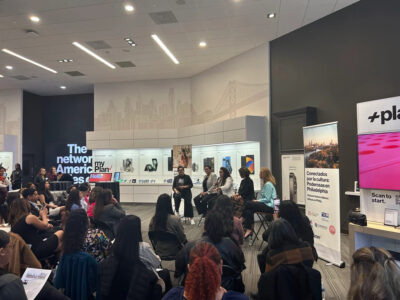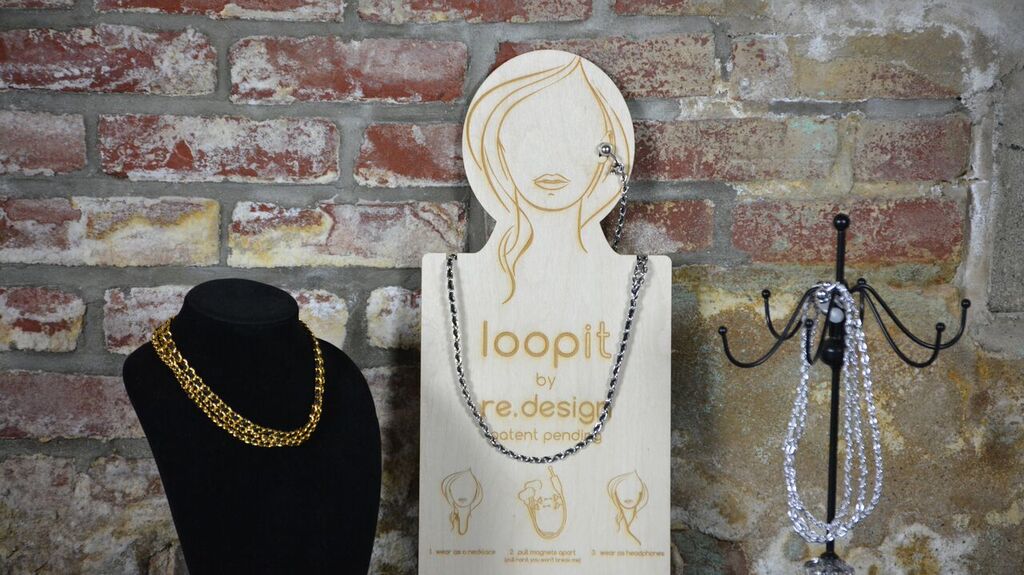Vanessa Chan is a problem solver.
For 14 years, the Queen Village resident solved problems at McKinsey & Company’s innovation practice, helping B2B and B2C clients develop new products.
Then she turned 40 and realized it was time to solve a problem of her own.
“One of the things that happened was that I hit 40 and was really thinking about what I wanted to do with my life,” Chan said. “Did I want to keep going on in the corporate world or did I want to do something different? I did a lot of soul searching.”
On this search, Chan, now 42, says she also started to see people all over the world bringing their creativity to market on Kickstarter.
With all of this innovation bubbling around her, Chan finally gathered the confidence to quit her job at McKinsey and launch her own creative venture.
To start Chan made a list of 100 things that she thought needed fixing. With that list, the concept of re.design, a makers’ studio that fixes the world’s problems through design, was born.
From that list Chan created five prototypes and the one that stuck out to her the most was Loopit, her solution to tangled headphones. Chan tinkered around with this idea for a while and saw that it resonated with a lot of people, so she decided to pursue its creation full time. Now Loopit is re.design’s cornerstone product.
Change from #headphones to #necklace in sec https://t.co/au6KLMk46M #transformation #gadget #TechNews #crowdfunding pic.twitter.com/y3bziq8Tbw
— redesign (@Re_DesignStudio) February 25, 2016
Chan says she knew crowdfunding would be the best way to do this since the whole crowdfunding model is really just a way to bring products to market with very low financial risk. It was also a good way for her to get pre-orders and test consumer interest in the product ahead of a full product launch. Remember, crowdfunding is really about marketing.
Her Kickstarter campaign went live this past January, and just two days after it hit the crowdfunding universe it had already reached 80 percent of its $15,000 goal. The campaign ended up amassing a little over double of its goal at $34,423.
When designing Loopit, Chan approached its construction in a very analytical way. She first studied physicist Robert Matthews’ tongue-in-cheek theory of how knots form in headphones, called “Murphy’s Law of String.”
The conclusion she drew from the study was that if a headphone’s audio jack and ear buds are kept apart from each other, then the likelihood of a knot forming is much higher.
This informed Loopit’s design, which features magnetic mechanical clips that keep the audio jack and ear buds together to minimize tangling. It also doubles as a piece of jewelry.
When asked why she thought the campaign was so successful Chan simply says from the beginning it was all about setting a reachable goal. She had several friends who were already excited about the product and figured with that network she could get at least halfway to her goal, and would work from there.
Soon local Philadelphia news outlets like CBS 3 started covering the campaign and her story sort of snowballed to a wider audience. UK tabloid The Daily Mail even took notice and ran a feature about Loopit.
Chan Wrote a one-week reflection article about her campaign on the Huffington Post where she compared her crowdfunding experience to taking care of a Tamagotchi, the handheld digital pets that kids went crazy for in the ‘90s. Tamagotchis were notorious for dying if their owners neglected to feed and play with them.
“With a Kickstarter campaign and a Tamagotchi, they’re identical,” she said in an interview. “You basically have to nurture it day and night.”
Chan says the Kickstarter also drew a lot of attention from West Chester’s own QVC. She’s also spending the month of March in China to produce more inventory and do quality control on the shipment that’s about to come back to the States in the next couple of months.
We CANT WAIT until our segment with @VittoriaWoodill airs after the #GRAMMYs on @CBSPhilly #inspire @polishd4pennies pic.twitter.com/ZoyMl2vpps
— redesign (@Re_DesignStudio) February 11, 2016
Chan’s path to entrepreneurship has put her in contact with a number of the Philly tech scene’s most powerful women.
As she weighed leaving her corporate life, Chan says three different people in the span of a week told her she needed to meet Ellen Weber, the executive director of Robin Hood Ventures and director of Temple University’s Innovation and Entrepreneurship Institute.
To her surprise, Ellen had also heard about her from their mutual friend, Joan Lau, managing partner at Militia Hill Ventures and president of Philly’s Alliance of Women Entrepreneurs chapter. Their relationship progressed and Weber recruited Chan to Robin Hood Ventures, where she is now a partner.
Similarly, Chan struck up a relationship with Danielle Cohn, Comcast’s director of entrepreneurial engagement, from their common work experience in leading corporate innovation efforts.
“The thing that I love about Philly is how small a world it is,” Chan said.
She’s also keeping the next generation in mind.
Chan’s children are students at Springside Chestnut Hill Academy, where she’s become a founding member of the K-12 school’s Venture Incubator Board.
Join the conversation!
Find news, events, jobs and people who share your interests on Technical.ly's open community Slack

Philly daily roundup: A better coffee supply chain; Philly Tech Week returns; Apply to Pennovation Accelerator

Philly daily roundup: Startups want office culture; New Venture Lab cohort; Penn Med's new AI leader

Will the life sciences dethrone software as the king of technology?


